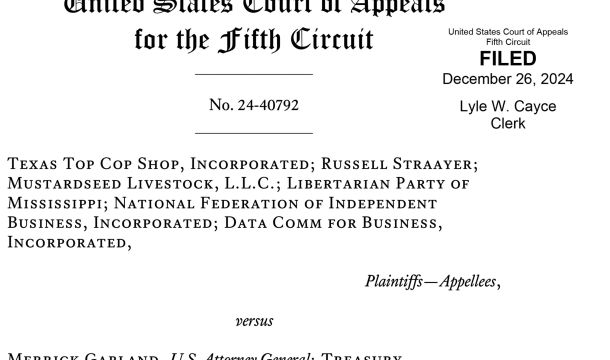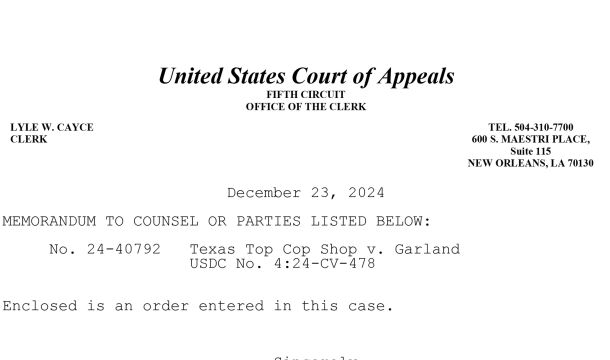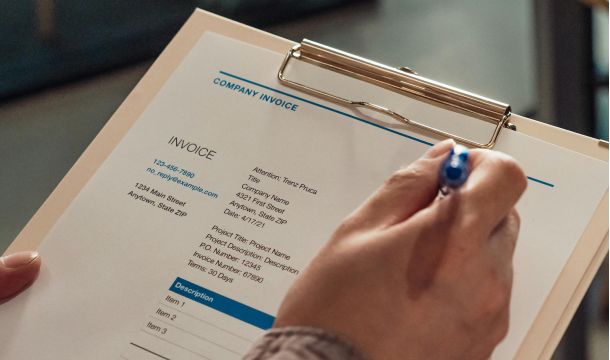The GovCon Bulletin™
GovCon Legal Round Up™ - May 19, 2021
U.S. COURT OF APPEALS FOR THE FEDERAL CIRCUIT DECISIONS
Pacific Coast Community Services, Inc. v. U.S. (April 30, 2021)
A government contractor (Pacific Coast Community Services) filed an appeal of a decision by the U.S. Court of Federal Claims dismissing its case. Contractor alleged that the federal government agency (Federal Protective Service) breached its firm-fixed price contract by underpaying it. Under the contract, the contractor was required to provide five full-time employees (FTE’s) to perform the contract work and submit invoices at the end of each month reflecting work actually performed. The contracting officer made unilateral deductions for hours invoiced but not actually worked. Contractor did not allege that its invoices were accurate or that its employees worked the required monthly hours. Rather, contractor essentially argued that because the contract was a firm fixed price contract, it was owed the monthly fixed price regardless of its performance. The Court of Appeals disagreed, concluding that the contract as a whole was for a deliverable number of productive hours, and that a firm fixed-price contract does not require the government to pay when a contractor does not deliver services. (Read decision here.)
GAO BID PROTEST DECISIONS
In re M R Pittman Group, LLC (Released May 6, 2021)
GAO dismissed a government contractor’s (M R Pittman Group, LLC) bid protest as untimely. The agency (Army, Corp of Engineers) issued an invitation for bids (IFB) for repair and maintenance services. Although the agency intended to set aside the requirement for small businesses, it did not identify in the IFB the NAICS code or the small business size standard. The IFB did, however, incorporate several FAR clauses that are applicable to small business set aside contracts, including FAR 52.219-6, Notice of Total Small Business Set-Aside. Although contractor’s bid was the lowest, the agency applied the NAICS code and size standard contained in its pre-solicitation notice and found contractor ineligible because it was other than a small business. Contractor challenged the agency’s denial of the award, arguing that by failing to include in the IFB a NAICS code and size standard, as FAR requires for small business set-asides, the agency should not have treated the IFB as a set-aside. GAO, however, determined that the IFP was “patently ambiguous” and that the time for contractor to raise the solicitation’s ambiguity was before the closing time for receipt of bids. (Read decision here.)
In re AECOM Management Services, Inc. (Released April 30, 2021)
GAO sustained the protest of a government contractor (AECOM Management Services, Inc.) that alleged an agency (Navy) conducted unfair exchanges with a winning bidder awarded a task order under a fair opportunity submission request (FOSR). Although the procurement was conducted under FAR 16.505, which applies to indefinite delivery contracts, and, thus, oral and written discussions under FAR Subpart 15.3 were not required, the FOSR stated that all offerors would be treated fairly. The agency gave the winning bidder an opportunity to make significant revisions to its proposal after the agency identified deficiencies in the agency's interchange notice. In contrast, the agency failed to alert the protesting contractor of a confidence decreaser with regard to one of the evaluation factors and did not permit the contractor to submit proposal changes or to revise its proposal. Instead, the agency merely permitted the contractor to submit evidence that clarified an unclear element of one of its evaluation factors. GAO concluded, therefore, that the interchanges were not fair because the winning bidder was provided with a significantly greater opportunity to enhance its proposal. (Read decision here.)
In re Deloitte Consulting, LLP (Released April 27, 2021)
GAO also ruled in favor of a government contractor (Deloitte Consulting, LLP) that protested the award of a task order issued by the General Services Administration (GSA) under a federal supply schedule (“GSA schedule”). The GSA’s request for proposal (RFP) sought quotations to provide cybersecurity support services for the Department of Housing and Urban Development (HUD). Contractor argued that the winning bidder had submitted quotations for labor categories specified by the RFP that went beyond the labor categories that were actually set forth in the bidder’s GSA contract. GAO agreed, finding that the labor categories in the bidder’s GSA contract that formed the basis for award could not be reasonably interpreted to include the services that the bidder proposed and that were required by the solicitation. (Read decision here.)
In re US21 (Released April 27, 2021)
GAO ruled that a government contractor’s (US21, Inc.) bid protest was untimely. The agency (Defense Logistics Agency) issued a request for information (RFI) seeking potential sources of supply for its fuel requirements. The agency later issued a solicitation for its fuel requirements but mistakenly posted the requirement as a “sources sought” rather than as a “solicitation.” After the solicitation was closed, contractor telephoned the agency to inquire about the procurement and was informed of the mistaken posting and that the solicitation requirement was closed. For several weeks after that telephone call, contractor made repeated requests to the agency to re-open the solicitation, but the agency declined and subsequently made an award to another bidder. Contractor then filed its bid protest arguing that the agency’s mischaracterization of the solicitation as a sources sought notice unreasonably limited competition and prevented it from submitting a response. Although contractor insisted that its protest was of the agency’s award, GAO agreed with the agency that the basis for the protest solely concerned the manner of solicitation and not the purported award. Consequently, since contractor failed to submit a protest within ten (10) days after its telephone call with the agency during which it was informed of the agency’s mistaken solicitation, GAO dismissed the protest as untimely. (Read decision here.)
In re Innovate Now, LLC (Released April 26, 2021)
GAO sustained the protest of a government contractor (Innovate Now, LLC) that challenged the terms of a request for proposal (RFP) issued by an agency (Air Force) seeking engineering, professional and administrative support services. The contractor argued that the RFP violated SBA regulations applicable to mentor-protégé relationships by requiring each member of a joint venture offeror to satisfy the same work experience requirements applicable to all offerors. GAO agreed that the requirement violated the prohibition against requiring a protégé firm to individually meet the same evaluation or responsibility criteria as that required of other offerors generally. GAO also sustained contractor’s arguments that other aspects of the RFP were ambiguous and not likely to provide insight to the agency. (Read decision here.)
SBA OFFICE OF HEARING AND APPEALS DECISIONS
In re Joint Information Network (April 7, 2021)
In this decision, the SBA’s Office of Hearing and Appeals (OHA) ruled that a contractor (Joint Information Network) was not a women-owned small business (WOSB). The agency (U.S. Navy Naval Information Warfare Center) had awarded a WOSB sole-source contract to the contractor, which had self-certified as a WOSB. However, when the contract period expired three years later, a final voucher was left unpaid. Indeed, six months after the contract closing date, rather than paying the voucher the agency’s contracting officer filed a protest challenging the contractor’s WOSB status and concluded that the contractor improperly misrepresented its WOSB status at the time of its offer and throughout contract performance. The contracting officer based the claims on a report by the agency’s office of inspector general (OIG) detailing the origins of the contractor business, which was purportedly owned by a father-daughter partnership. OIG found that the contractor's partnership agreement was inconsistent with the company’s actual business practices and that, contrary to the terms of the partnership agreement, the daughter-owner had not actually made capital contributions to the partnership. OIG ultimately recommended that the agency contracting officer file a status protest with the SBA, which the contracting officer did. After reviewing the contractor’s submissions, the SBA concluded that the contractor did not meet the WOSB eligibility requirements and could no longer represent itself as a WOSB. The contractor then appealed the decision to OHA, which affirmed the SBA’s determination. However, in affirming that the contractor was not an eligible WOSB, OHA pointed out that its determination might have no impact on the procurement. Under the SBA’s regulations, upon a finding that a contractor is ineligible, a contracting officer is directed to terminate a contract or contract award or to suspend contract performance, but these remedies seemingly are ineffective when the contractor has already completed contract performance. (Read decision here.)



